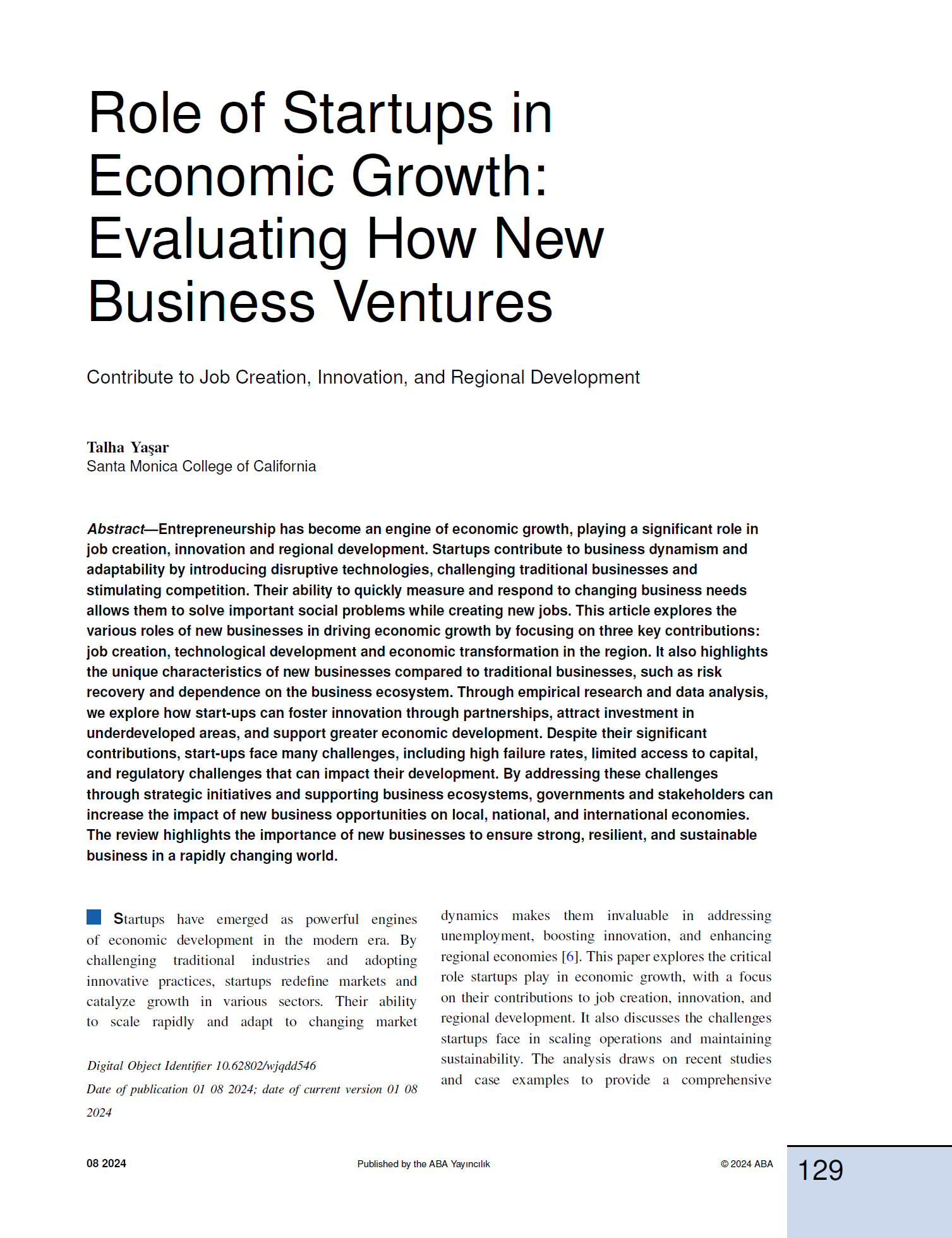Role of Startups in Economic Growth: Evaluating How New Business Ventures Contribute to Job Creation, Innovation, and Regional Development
DOI:
https://doi.org/10.62802/q5s48371Keywords:
Social problem-solving, Entrepreneurship, Job creation, Startups, Disruptive technologies, Business dynamism, Economic transformation, Regional developmentAbstract
Entrepreneurship has become an engine of economic growth, playing a significant role in job creation, innovation and regional development. Startups contribute to business dynamism and adaptability by introducing disruptive technologies, challenging traditional businesses and stimulating competition. Their ability to quickly measure and respond to changing business needs allows them to solve important social problems while creating new jobs. This article explores the various roles of new businesses in driving economic growth by focusing on three key contributions: job creation, technological development and economic transformation in the region. It also highlights the unique characteristics of new businesses compared to traditional businesses, such as risk recovery and dependence on the business ecosystem. Through empirical research and data analysis, we explore how start-ups can foster innovation through partnerships, attract investment in underdeveloped areas, and support greater economic development. Despite their significant contributions, start-ups face many challenges, including high failure rates, limited access to capital, and regulatory challenges that can impact their development. By addressing these challenges through strategic initiatives and supporting business ecosystems, governments and stakeholders can increase the impact of new business opportunities on local, national, and international economies. The review highlights the importance of new businesses to ensure strong, resilient, and sustainable business in a rapidly changing world.
References
Decker, R., Haltiwanger, J., Jarmin, R., & Miranda, J. (2014). The role of entrepreneurship in US job creation and economic dynamism. The Journal of Economic Perspectives, 28(3), 3– 24. http://www.jstor.org/stable/23800573
Dent, R. C., Karahan, F., Pugsley, B., & Şahin, A. (2016). The role of startups in structural transformation. The American Economic Review, 106(5), 219–223. http://www.jstor.org/stable/43861018
Ester, P. (2017). Innovation and startups in Silicon Valley: An ecosystem approach. In Accelerators in Silicon Valley (pp. 37–62). Amsterdam University Press. https://doi.org/10.2307/j.ctt1zrvhk7.7
Pollman, E. (2019). Startup governance. University of Pennsylvania Law Review, 168(1), 155– 221. http://www.jstor.org/stable/45389498
Reypens, C., Delanote, J., & Rückert, D. (2020). From starting to scaling: How to foster startup growth in Europe. European Investment Bank. http://www.jstor.org/stable/resrep52653
Sedláček, P., & Sterk, V. (2017). The growth potential of startups over the business cycle. The American Economic Review, 107(10), 3182–3210. http://www.jstor.org/stable/44871781









